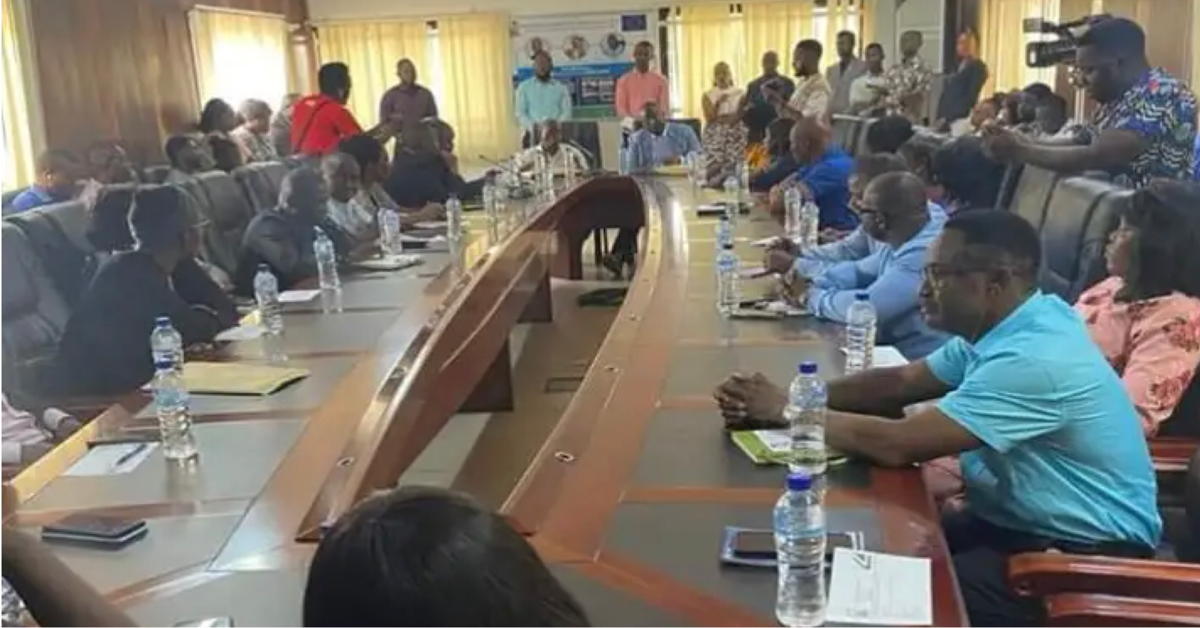More than 90 Ministries, Departments, and Agencies (MDAs) in Sierra Leone have submitted their budget proposals for the fiscal year 2025 to the Ministry of Finance, as the country gears up for a crucial phase of financial planning.
These submissions are part of the broader process of aligning the nation’s fiscal policies with President Julius Maada Bio’s ambitious development agenda, specifically targeting the “Five Big Changers” initiatives.
The Financial Secretary of the Ministry of Finance, Matthew Denga, emphasized the significance of this year’s budget hearings, noting that they serve as a foundational step in shaping the FY2025 national budget.
“This process is a roadmap to realizing the transformative goals set by President Bio’s administration,” Denga stated. He further highlighted that the proposed budget will undergo scrutiny and potential amendments by parliament, ensuring that it meets the needs of the nation while staying aligned with the president’s vision.
While most MDAs have successfully submitted their budget proposals, a few were stood down due to inadequate documentation, underscoring the importance of meticulous preparation in securing funding for the upcoming fiscal year.
These setbacks highlight the need for enhanced capacity and attention to detail within the affected agencies.
Denga also expressed his satisfaction with the two-week budget hearing process, praising it as a dynamic and interactive forum that fostered significant knowledge exchange among participants.
“The sessions were not just about figures and allocations; they were about sharing insights and building a collective understanding of our national priorities,” he added.
The Ministry of Finance extended its gratitude to all stakeholders involved in the budget process, including the media, civil society organizations, development partners, and budget experts from the Ministry of Development and Planning. Their contributions were recognized as vital to the success of the budget formulation process.
Ibrahim Bai Koroma, Executive Director of Citizens Rights Network, Sierra Leone, shared his perspective on the budget hearings, acknowledging the challenges faced by some MDAs but commending the overall process.
“Despite the loopholes, the budget hearing was a commendable effort. However, MDAs must be better prepared to defend their financial plans in the future,” Koroma advised.
He urged the Ministry of Finance to ensure timely allocation of funds to all MDAs, stressing that this would be critical to achieving the Five Big Changers.
Mohamed Konneh, a journalist, underscored the importance of the FY2025 budget discussions, describing them as essential for nation-building and state development.
He encouraged his fellow journalists to play an active role in educating the public on the outcomes of the budget process, noting that understanding these financial decisions is crucial for the country’s progress.
Community voices also resonated during the budget discussions. Hawa Kamara, Deputy Chairlady of Constituency 113 in Calaba Town, urged the government and donor partners to focus on community-centric projects that directly benefit the citizens, particularly in areas such as education and cost of living. She highlighted the need for the FY2025 budget to address pressing issues like low teacher salaries and the high cost of basic necessities.
Similarly, Mohamed Dumbuya, Youth Chairman of Constituency 076 in Port Loko District, called for increased funding for the National Drug Law Enforcement Agency (NDLEA) to combat the rising threat of illegal drugs, including “Kush.” He emphasized that financial support for the NDLEA and other line ministries is crucial for addressing these challenges and improving service delivery.
As Sierra Leone prepares for the next fiscal year, the successful approval of the FY2025 budget proposals will be a critical step in advancing the nation’s development goals and addressing the pressing needs of its citizens.
The Ministry of Finance is expected to present the finalized budget to Parliament for approval in the coming weeks, with stakeholders eagerly anticipating the outcomes











